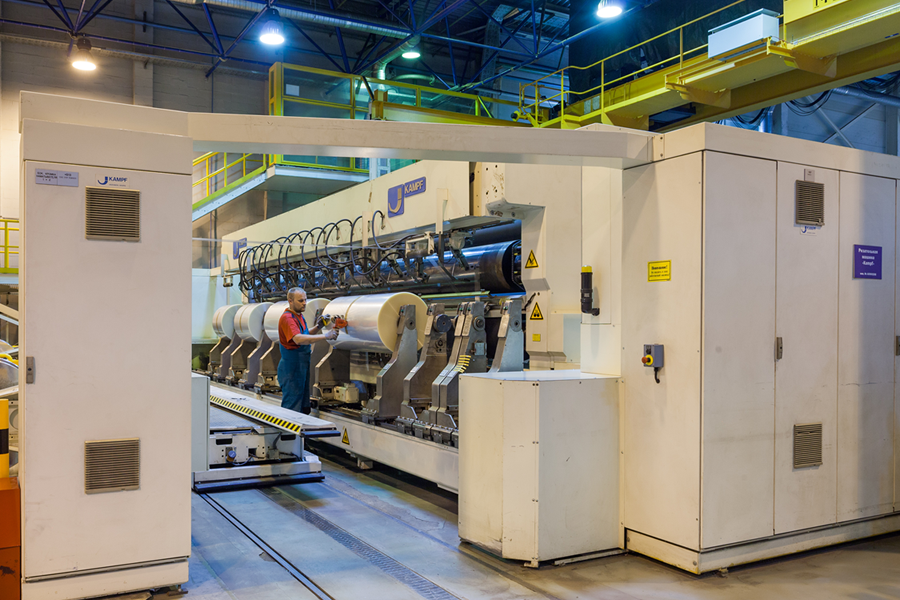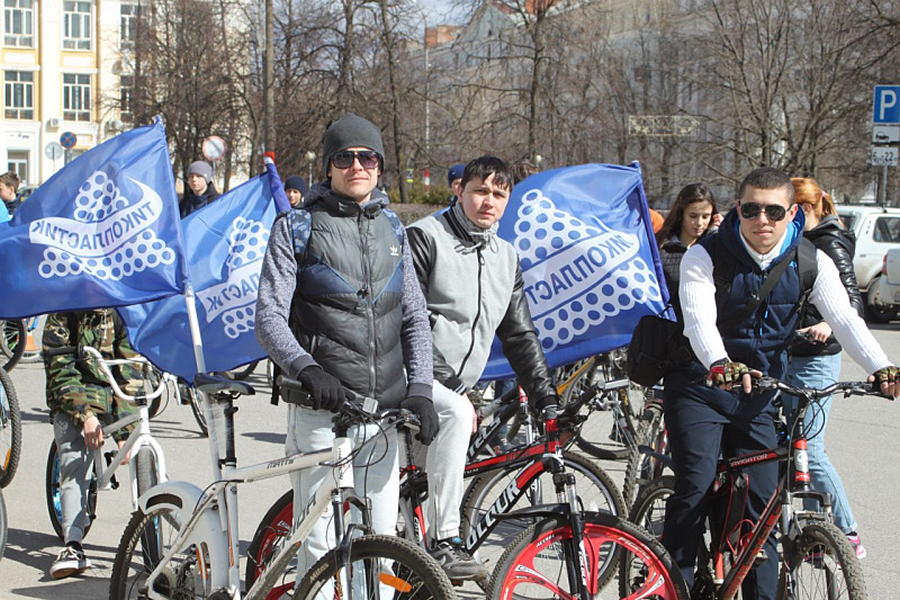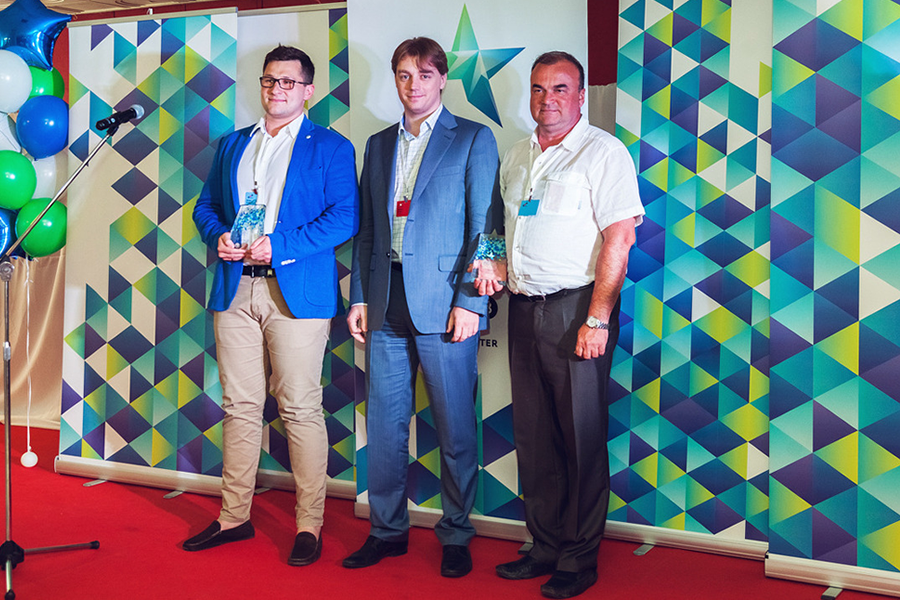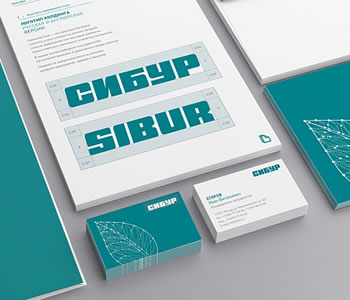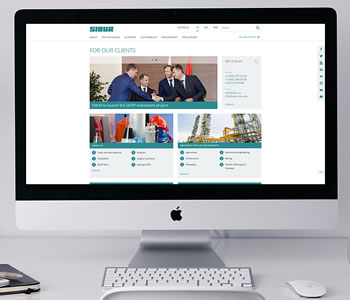An important area of our joint work that complements feedstock supplies is technical collaboration – we test all SIBUR’s new developments and provide our opinion. For example, TIKO-Plastic experts are often involved in trying out SIBUR's polyethylenes with new additives.
Over the recent years, the flexible packaging market has been growing rapidly. Your company is one of the players in this market. What is the market environment like today? What product segments are you developing?
TIKO-Plastic was established in 1999, and we have been producing polyethylene films and bags ever since the inception. We have a number of key areas of business: production of mono-layer and multi-layer films with printing, special packaging, and custom-made and standard bags (with client logos or standardised design).
TIKO-Plastic’s current position is fairly strong, and we are developing the company as demand is expanding, too. According to experts, in 2016, the Russian market of flexible polymer packaging grew by 2–4% and is projected to add another 4–5% by the end of 2017. On top of that, there are qualitative changes in our segment as well. In particular, we see the enhancement of manufacturing properties of materials and stricter requirements to the functionality of packaging.
It is clear that today Russian producers fully meet the internal demand for packaging. What about the availability of Russian raw materials? Do you use Russian polymers in your production?
We certainly do. Around 60% of the polyethylene that we consume is produced in Russia. One of our key suppliers is SIBUR.
Please tell us more about your cooperation with SIBUR.
Our relations were established back in 2007, and in 2010, we signed a formula pricing contract to purchase polyethylene. Volumes of products supplied by SIBUR to TIKO-Plastic have now increased six-fold.
Customer forums are a very effective tool to engage customers, as it provides businesses with the opportunity to receive a whole range of important information, from properties of new products to recommendations on how to achieve the best promotion in the market.
An important area of our joint work that complements feedstock supplies is technical collaboration – we test all SIBUR’s new developments and provide our opinion. For example, TIKO-Plastic experts are often involved in trying out SIBUR's polyethylenes with new additives. We are happy with the scale and scope of our partnership and see a great long-term potential in it.
Is SIBUR's existing range of product grades sufficient, or you expect new products to come on stream?
Getting something more is always better because the market does need new products. But now we see the path to be taken. We expect that ZapSibNeftekhim, when commissioned, will spur more solutions that the market will appreciate. We are also ready to test new films with specific properties that BIAXPLEN, which is part of SIBUR, can offer.
Today, SIBUR is actively developing its focus on customers. Can you feel it? Are there any changes?
SIBUR has always treated customers very well. But I must admit that the company is improving further. Customer forums are a very effective tool to engage customers, as it provides businesses with the opportunity to receive a whole range of important information, fr om properties of new products to recommendations on how to achieve the best promotion in the market. During joint meetings we discuss our individual strategy for cooperation and also technological aspects.
BIAXPLEN can offer new films with specific properties.
What are TIKO-Plastic’s priorities in 2017? What goals do you plan to achieve going forward?
For some years now, we have been producing matte and glossy films. Recently we have expanded our technological capacities, and today we make more use of tactile effects, such as the so-called paper look.
We believe that to keep our positions in the market, we need two things: to constantly improve our product quality and to foster long-term relationships with our clients. These aspects are interconnected – you cannot retain clients if you have nothing exciting on offer. That is why we are digging into new technologies to produce polymer films and to print on them. We are also planning to develop our existing range of multi-layer materials to enhance their barrier properties.
As to our top priority technologies, we plan to focus more on introducing new solutions in flexography, a technology which helps create outstanding design effects. This is now a sought-after technology in the market. For some years now, we have been producing matte and glossy films. Recently we have expanded our technological capacities, and today we make more use of tactile effects, such as the so-called paper look.
Technological development of any company is first of all about upgrading the equipment. What are you investing in today?
Every year we expand and upgrade our equipment in use. This year the company is installing Super Combi 4000 NORDMECCANICA, a new combined laminator. TIKO-Plastic became the first Russian company to have this latest improved model, which offers a high level of automation. On top of that, in 2017, the company is going to launch FPlus COMEXI, a new 10-colour flexographic press, and is considering installing a multi-layer extrusion machine.
TIKO-Plastic sponsored a clean-up initiative in Dzerzhinsk, and its employees participated in a bike ride.
2017 was designated as the Year of Ecology in Russia. Is it relevant for your company?
TIKO-Plastic is committed to improving the environmental awareness of its staff. In particular, executive managers are obliged to participate in a training programme titled Ensuring Environmental Safety by Managers and Process Control Specialists.
Environmental protection and consumer safety are certainly important for us. Environmental safety of polymer product manufacturing is improved through the use of modern recycling technologies, environmentally-friendly packaging and implementation of environmental programmes. This is what we are bringing to life in our operations.
TIKO-Plastic regularly sponsors municipal initiatives aimed at environmental protection, and has a comprehensive system of polymer product recycling. Moreover, our company produces custom biodegradable bags made of either Mater-Bi (a joint project with Novamont) or a special oxo-biodegradable additive (in 2011, this helped the company receive a diploma in the New Product nomination of the 100 Best Goods of Russia contest).
Also, TIKO-Plastic is committed to improving the environmental awareness of its staff. In particular, executive managers are obliged to participate in a training programme titled Ensuring Environmental Safety by Managers and Process Control Specialists.
At the beginning of 2017, TIKO-Plastic participated in ProdExtraPack, an international packaging competition, and received a number of highly recognized awards. What advantages of your products helped you get ahead of competitors?
We manufacture our products in collaboration with clients and key partners, including SIBUR. That is why they are aligned with the current trends in the packaging market.
One of the awards we received was for our triplex laminated film (includes metallised PET, BOPP and polyethylene) used in the packaging of instant coffee. In this groundbreaking product, we combined the use of modern paints and film with a matte layer to produce metallic effect on one side and matte varnish effect on the other. Thus, by using flexographic printing technologies, we avoided extra costs and created premium-quality packaging adapted for easy peel (easy open) option. Due to the use of high-quality polyethylene, the bags made of this type of film are easily equipped with a ziplock seal. Our premium option includes food and non-food packaging produced for a wide range of products.
The second award was given to a film for wet wipes packaging with 10-colour flexographic prints. In its production, we use a duplex material which includes BOPP matte film and polyethylene, thus making it a perfect solution for storing sanitary products. Using cutting-edge polymer materials with special additives gives packaging an outstanding tactile and visual paper look, while high-quality flexography helps create bright and clear images. On top of that, our film has good barrier properties.
The flexible polymer packaging market where we operate is viewed as fairly stable, with demand growing slowly but steadily. The key drivers are macroeconomic and macrosocial factors. For example, urbanisation quite naturally leads to increased levels of packaged products consumption.
The third award was given to triplex laminated film designed for the packaging of toasts, crackers and other snacks. It has a unique formula that includes matte BOPP, metallised PET and polyethylene. Due to the high resolution of printing, we can put complicated images on the film. A special formula ensures good welding properties and makes it possible to produce strong and wide welding seams. This type of packaging provides excellent protection from fats, oxygen, light, moisture and off-odours.
What are TIKO-Plastic’s key markets and their outlook?
We cooperate successfully with companies from Belarus, Armenia, Kazakhstan and Uzbekistan, supplying them bags and flexible packaging with printing. We plan to continue our exports activities – right now we are negotiating potential cooperation with a number of foreign companies. Although, frankly speaking, ramping up export volumes is not among our key short-term priorities.
The flexible polymer packaging market wh ere we operate is viewed as fairly stable, with demand growing slowly but steadily. The key drivers are macroeconomic and macrosocial factors. For example, urbanisation quite naturally leads to increased levels of packaged products consumption.
I believe that in the upcoming years, the packaging segment will become one of the leading drivers in the polymer production market. Even today we see the increasing volume of packaging used in the food and personal hygiene markets. The trend is also confirmed by recent research conducted by Ceresana, a German market research company, which shows that it is the packaging market that is key for extruded products.
We engaged into the polymer packaging market almost 20 years ago, and today, we have every confidence that it will continue expanding in Russia.
This summer, TIKO-Plastic won the Leader of Competitive Sales award.
Download PDF

